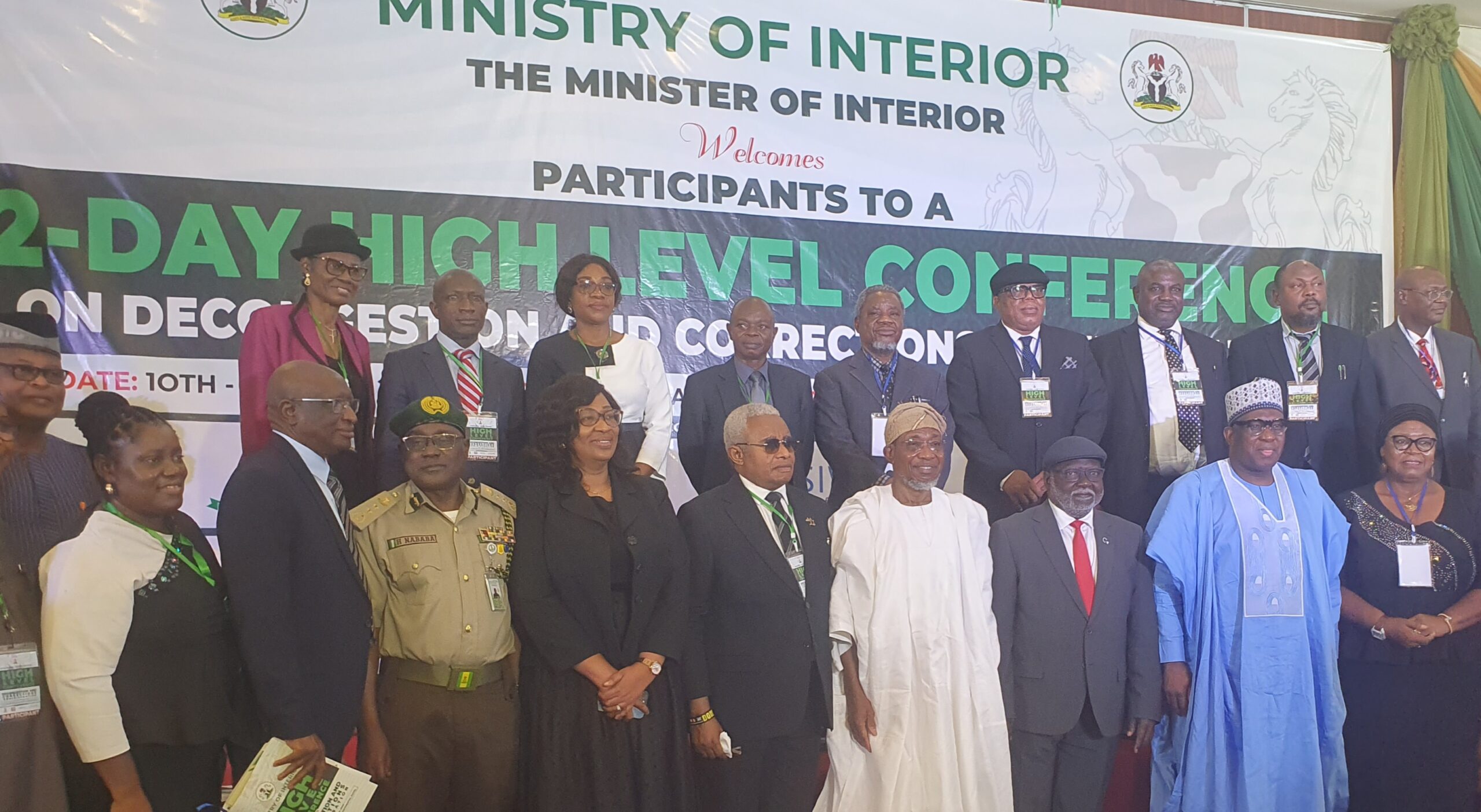•High-level conference on decongestion and corrections administration concludes with key resolutions
Senator Iroegbu
The Federal government, PRAWA and other stakeholders have come up with effective strategies for managing pretrial detention, and congestion in correctional centers in aid of detention-related reforms.
This was the outcome of a two-day high-level conference on decongestion and corrections administration in Nigeria came to a close on Thursday, May 11, 2023. The conference, organized by the Ministry of Interior in collaboration with PRAWA (Prisoners Rehabilitation and Welfare Action), the Nigerian Correctional Service (NCoS), and with the support of OSIWA (Open Society Initiative for West Africa) and UNICEF.
Over 200 participants from various stakeholders in the criminal justice sector gathered at the Ladi Kwali Hall in Abuja Continental Hotel to discuss pressing issues and propose sustainable solutions. The conference included presentations on custodial and non-custodial data and statistics, breakout group sessions, and intensive discussions on themes related to corrections.
A communique issued at the end of the high-level conference on decongestion and corrections administration listed key resolutions and recommendations.
During the conference, several factors contributing to the high number of awaiting trial persons (ATPs) in custody were identified. These factors included slow dispensation of justice, delays in prosecution, lack of synergy between arresting and prosecuting agencies, inadequate legal services, frequent transfer of judicial and police officers, population growth, stringent bail conditions, inadequate personnel and logistics, corruption, underdeveloped criminal justice system, physical file management issues, and lack of implementation of existing laws.
In response to these observations, the conference reached a series of resolutions designed to address the challenges and promote effective reforms in the criminal justice system. The resolutions covered three main areas: sustainable strategies for reducing the number of pre-trial detainees, effective implementation of non-custodial measures, and reformation, rehabilitation, and reintegration of inmates and ex-inmates.
Regarding pre-trial detainees, the conference urged the full implementation of Section 12 of the Nigerian Correctional Service Act, which includes provisions for effective pre-trial management. It emphasized the need for synergy between arresting bodies and prosecuting agencies, the provision of pro bono legal services, and the establishment of courts within custodial centers. The conference also called for the full implementation of the Administration of Criminal Justice Act (ACJA), building additional custodial center structures, and the decriminalization of minor offenses.
To enhance the implementation of non-custodial measures, the conference recommended amending the law to reduce offenses requiring pretrial detention, categorizing crimes clearly, and ensuring strict adherence to sentencing guidelines. It stressed interagency collaboration, utilization of community service sanctions, and awareness creation among stakeholders. The conference also emphasized the need to provide financial provisions for non-custodial supervision and explore alternative sanctions to fines for petty crimes.
Regarding reformation, rehabilitation, and reintegration, the conference proposed various measures. These included staff training, professional therapy for inmates, mechanisms for release through fine payment, improved welfare for correctional officers, rehabilitation and reintegration support, community-based approaches, employment opportunities for ex-inmates, and the issuance of certificates of good behavior. The conference also recommended housing and financial support for ex-inmates, extended educational and vocational programs, and the use of restorative justice measures.
In terms of performance review, monitoring, and oversight mechanisms, the conference called for visits to detention centers by judges and magistrates, the establishment of custodial center visiting committees, effective inmate database management, and adequate budgeting for oversight. It also emphasized the need for the implementation of the National Preventive Mechanism against torture and the ACJA monitoring committee.
Lastly, the conference discussed the concurrent role of federal and state governments in corrections management. It recognized two possible models, federalism or collaboration, and recommended a transition period for states to gradually assume control over custodial centers based on agreed-upon models.

